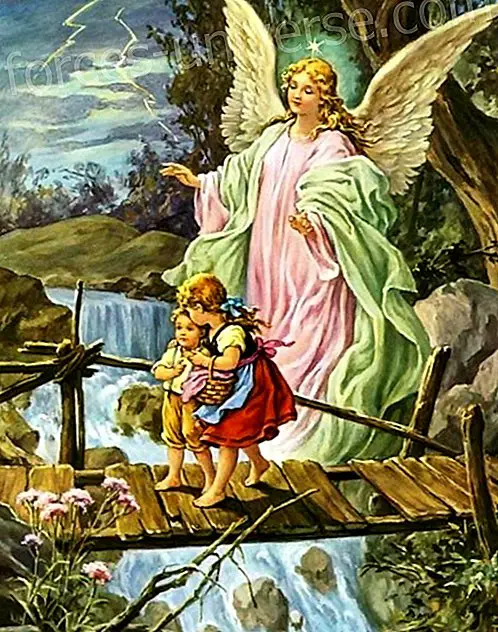How was Greek mythology born? How was religion born? When is civilization born? How are legends and oral traditions born? It is difficult to find an exact origin to many customs, stories and facts that were sown thousands of years ago. Thus, wars, the multiple civilizations that have passed and razed others, and the lack of written material, make it difficult to access the roots of the events that hide beyond ancient history .
Be that as it may, today we would like to know how Greek Mythology was born, of vital importance throughout the centuries . Let's not forget that even now, we represent and interpret their gods over and over again. In fact, it was a basic influence for the ancient Roman Empire, of great importance for all of Europe and for the current civilization as we know it.
What is Greek mythology
We can consider Greek Mythology as the set of beliefs and ritual observations that formed at its birth the Hellenic civilization . Thus, it was configured approximately 4000 years ago, that is, in 2000 BC

It is considered to be made up of a huge plethora of stories and legends that tell the life of a great variety of gods. However, its greatest development was instructed approximately in 700 a. C., when mythical and vitally important works appeared in history. We refer to 'The Iliad' and 'The Odyssey', by Homer, and 'The Theogony', by Hesiod .
However, it is believed that Hellenic Mythology became conformed by a pantheon capable of grouping up to almost 30, 000 gods . However, not all names had the same importance for the life of the Greeks.
However, it must be remembered that there are vital characters. Like the great God Zeus, the god of war Ares or even some demigods like Heracles, later known as Hercules.
It should be noted that Greek mythology had a strong incidence among the people . We must not forget that many gods corresponded to facts of everyday life. Thus, there was a deity for almost anything that happened, such as the overflow of a river, a rainy day or a good harvest.
However, its base focuses on legends from other even older civilizations, previously settled in the eastern part of the Mediterranean Sea. Thus, although the prominent Greek cities were not especially religious, they did feel an enormous spiritual need. That is why its cultural heritage was formed around these deities. Deities that shaped his daily life and shaped the destiny of each being .
Singularities of Hellenic Mythology

Yes we found certain singularities that make up Hellenic Mythology. A fact that we have not located in other spiritual beliefs:
- It does not include special revelations, just as it does in other religions. In fact, the attitudes of their gods are much more prosaic, and less messianic.
- They do not have a written code or holy book . In fact, they are not very strict in their forms. Although according to the city and the temple, it was necessary to follow the stipulated rules.
- The Greek gods are more human than any other . Moreover, they personified forces of the universe, which served the Greeks to interpret their reality. Thus, they were unpredictable and sometimes acted very strictly, sometimes justly. Pray vindictive, pray kind. It is evident that their lack of ability to interpret the world in a scientific way led them to believe in deities capable of managing the planet at will.
- Yes, they demanded sacrifices and exemplary and pious behavior . But given the unpredictability of his attitude, it didn't always work.
- They were very nosy gods in the lives of men . But of course, isn't rain intrusive in the good end of a harvest? It is evident that when you dump anything that happened in the will of your deities, you led them to believe that they took human form to decide and interfere for one or the other.
Difficult to know the real origin of Greek mythology . But it is clear that, after more than 4000 years of history, it is still as exciting and vibrant as before.
By Pedro, editor of the Great White Brotherhood






